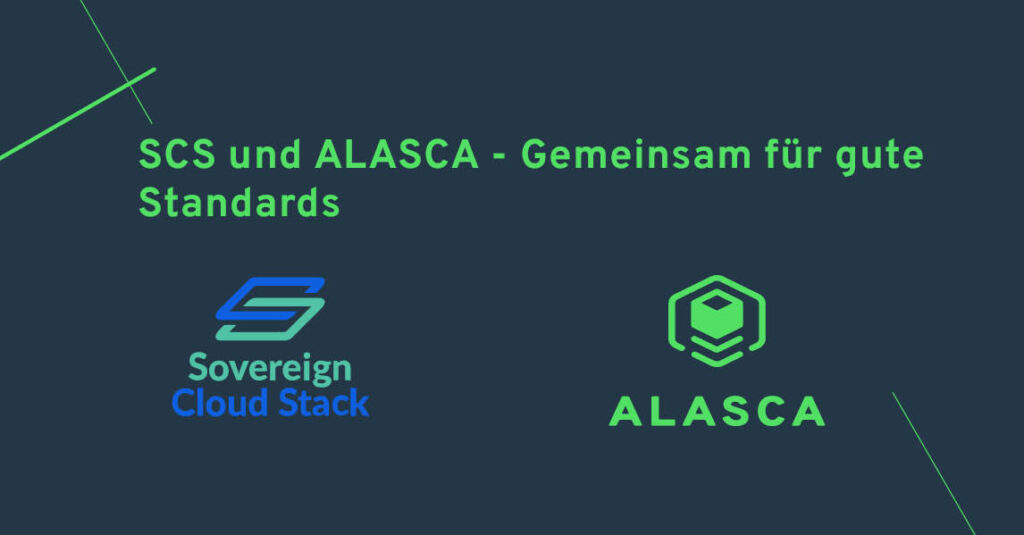The Sovereign Cloud Stack (SCS) project develops open standards for the provisioning of cloud and container infrastructure together with cloud providers, users and partners. In addition, a complete, completely openly developed and production-ready software implementation is offered together with broad knowledge on how to reliably operate it. Simplifying the operations of modern cloud infrastructure facilitates the emergence of a broad interoperable ecosystem of cloud offerings, supporting users to achieve a higher level of digital sovereignty (or in other words a higher level of self-determinism in the digital space). SCS is a project of the Open Source Business Alliance e.V. (Federation for Digital Sovereignty) and is funded by the BMWK (German Ministry for Economic Affairs and Climate Action). SCS supports the realization of Gaia-X and the German Administrative Cloud (DVC) and provides a technical implementation with a modular Open Source solution.
After announcing the collaboration between SCS and ALASCA e.V. already in January 2023 in a joint statement a lot of joint work has happened throughout the last months especially in the area of SCS standardization.
Special Interest Group for SCS standardisation activities with additional support from ALASCA
Starting today, the Special Interest Group for the standardization activities of SCS will be governed by both the ALASCA project and the SCS project team and coordintated by Dr. Matthias Büchse from Cloud&Heat Technologies. Building on top of already existing standards, the goal is to achieve a broader adoption of SCS standards by more close collaboration with ALASCA and also cover the ALASCA technology stack with the cloud-lifecycle management tool YaookProviding a second standards-compliant implementation of SCS standards on top of Yaook validates the universal nature of the standards. The broader setup also supports the high quality of the evolving standards and the sustainability of the SCS standardization efforts. The Special Interest Group is open to all cloud providers and integrators that want to contribute and provide SCS-compliant services.
Further strengthening of ALASCA projects and community
Likewise for ALASCA, the closer collaboration in the evolution of the standards offers significant value: The association pursues enabling the digitally sovereign setup and operations of own cloud infrastructure by research, educational or generally public entities as well as private sector companies and individuals based on Open Source Software and the connected supply of competencies. With the SCS standards, this effort receives a unique foundation, upgrading the relevance of the ALASCA-driven Open Source Software. The ALASCA community significantly benefits from the additional support by the SCS community.
